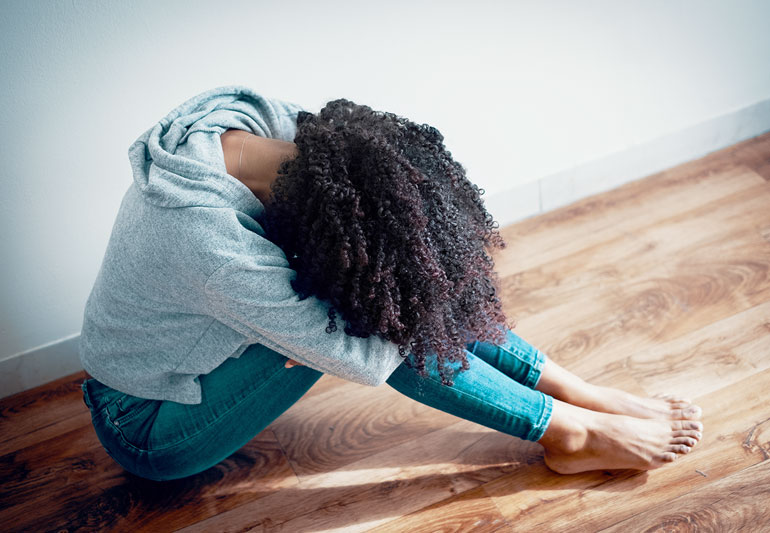Q: Can you have both anxiety and depression at the same time?
A: Anxiety and depression commonly occur together, but you can experience them separately as well. While anxiety and depression have their own symptoms and clinical features, there is some overlap.
Cleveland Clinic is a non-profit academic medical center. Advertising on our site helps support our mission. We do not endorse non-Cleveland Clinic products or services. Policy
Feeling depressed can cause us to worry and worrying can cause us to become depressed.
If we’re working with someone who seems to have a lot of depressive symptoms, but there is a high degree of anxiety there as well, it’s almost like we’re trying to sort out the chicken and the egg. We’re trying to figure out which one was first and did one cause the other?
Hallmark signs of depression can include: feelings of sadness and hopelessness, loss of interest, trouble sleeping, feeling exhausted, a change in appetite, unexplained physical pain or aches and feeling like small tasks take extra effort.
Symptoms of generalized anxiety disorder can include: persistent and severe worrying (that’s sometimes not proportional to what’s actually going on), overthinking and envisioning worse-case scenarios, obsessing over situations or outcomes, indecisiveness, fear, inability to relax, feelings of restlessness, trouble focusing or physical agitation.
The big differentiation between sadness and clinical depression is that the symptoms are not nearly as severe or persistent. They don’t interfere with our ability to function on a day-to-day basis when we’re just sad or having a bad day.
And there’s a difference between normal worry and someone who is suffering from anxiety. It’s OK to worry from time to time about how you’ll do on a test or about talking to your boss about a raise. But if it starts becoming persistent and reaching across all areas of your life, then that might signal you’re dealing with something bigger. Being in a prolonged state of stress and anxiety (or constantly triggering your fight or flight response) can have major consequences on your health.
Depression and anxiety are treatable, whether they occur together or separately. Most people benefit from psychotherapy (talk therapy), cognitive-behavioral therapy (CBT) medication or a combination.
Education and transparency are some of the biggest ways to diminish the stigma that surrounds mental health so that people suffering can get the help they need. If you or someone you know needs help, reach out to a mental health expert or connect with a resource or support group, such as:
– Psychiatrist Karen Jacobs, DO.
